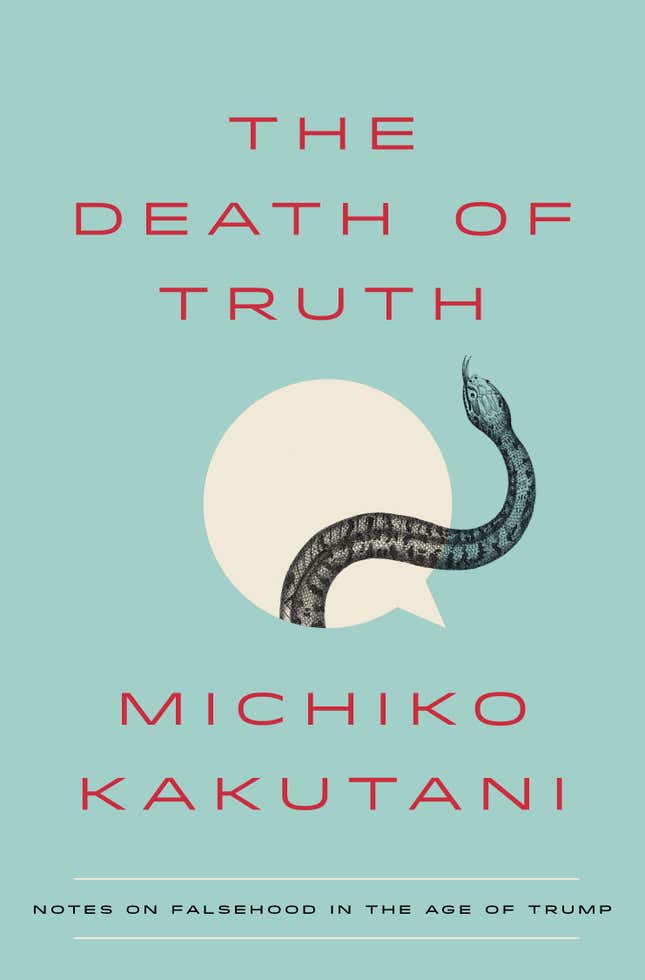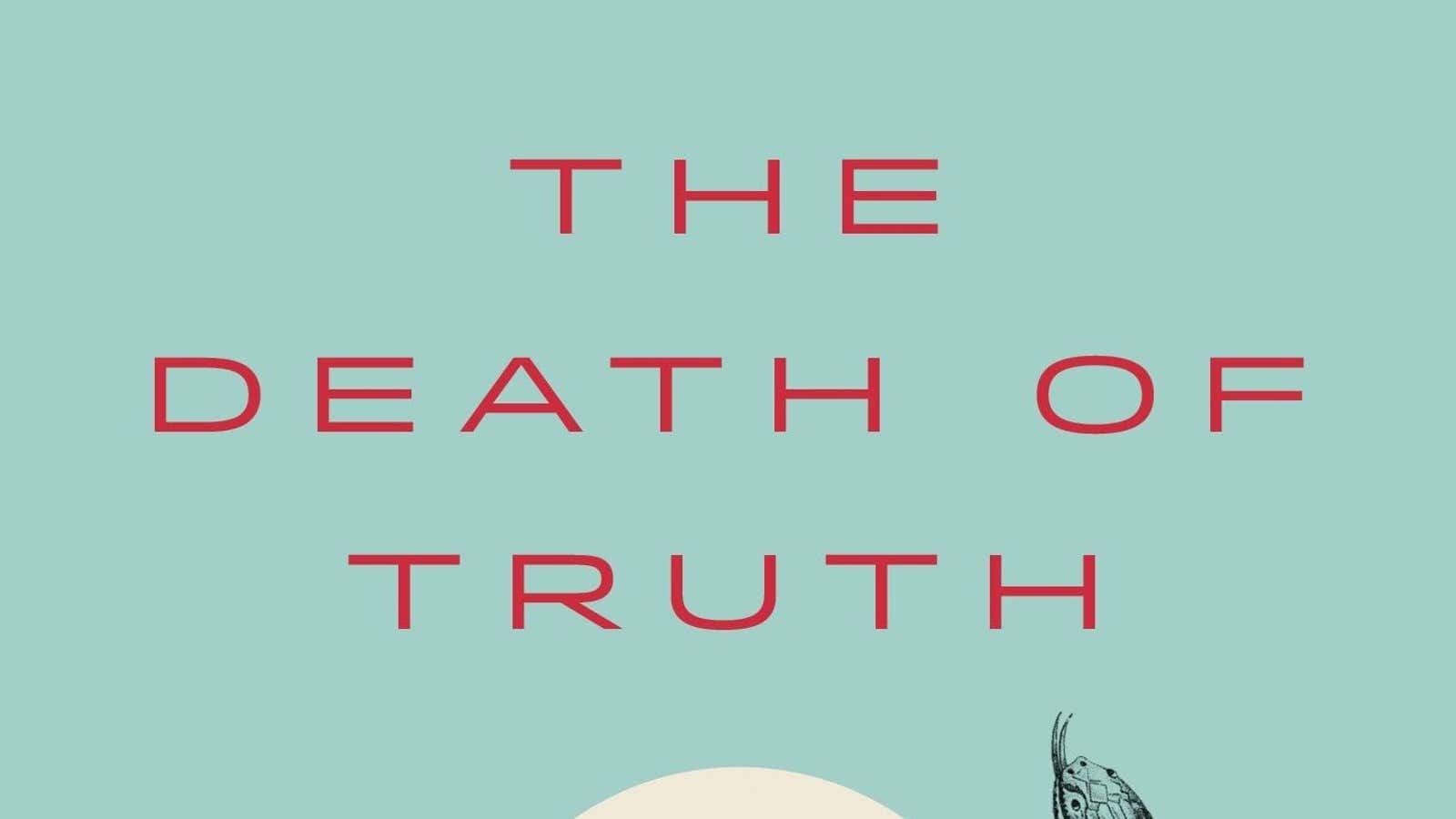
In Michiko Kakutani’s new book, The Death of Truth, out July 17 from Tim Duggan Books, the former chief book critic of the New York Times puts forward an intriguing argument: The American right’s discarding of truth is a descendent of the postmodern movement, which ruled American and European cultural production in the late 20th century.
Kakutani’s 208-page book is a compact literary treatise, presented in the vein of Timothy Snyder’s bestselling exhortation, On Tyranny. Using her deep cultural arsenal from three decades of criticism, she calls on Jorge Luis Borges, Thomas Pynchon, Zeynep Tufekci, Christopher Nolan’s the Joker, Jacques Derrida, James Madison, Black Mirror, George Orwell, and Hannah Arendt to tie together internet filter bubbles, Russian fake news operations, Steve Bannon, and Leninism.
The book argues, as others have, that Trump’s power comes from his bombastic style of simultaneously ignoring the truth and degrading the methods by which we come to it—much like the propaganda machines of the Soviet Union, Putin’s Russia, and Nazi Germany.
But Kakutani takes it a step farther: She argues that the particular disdain for the truth that currently prevails in the US—including the rejection of “elite” journalistic fact-finding and evidence-based science—has intellectual roots in high culture:
It’s safe to say that Trump has never plowed through the works of Derrida, Baudrillard, or Lyotard (if he’s even heard of them), and postmodernists are hardly to blame for all the free-floating nihilism abroad in the land. But some dumbed-down corollaries of their thinking have seeped into popular culture and been hijacked by the president’s defenders, who want to use its relativistic arguments to excuse his lies, and by right-wingers who want to question evolution or deny the reality of climate change or promote alternative facts.
Postmodernism is a difficult-to-define critical movement from the late 1970s that interpreted art and texts from a position that there was no knowable, central truth. Postmodern works of art and architecture, argues Kakutani, led to groundbreaking new visions, from people like David Bowie, David Lynch, and Frank Gehry—but those theories moved through culture, and were misapplied to history, social sciences, and hard sciences. That’s how the US got anti-vaxxers, climate change deniers, and conspiracy theorists, writes Kakutani.
The unreliable narrators of fiction, which gave us books like Lauren Groff’s Fates and Furies, TV shows like The Affair, and films like Kurosawa’s Rashomon, gave Trump and his army of yes-people the ability to get away with “alternate facts.” They allowed Bill Clinton to say truth “depends on what the meaning of the word ‘is’ is” and Trump’s supporters to argue that by taking the president as his word, the media is just reading him too literally.
This viewpoint that “all truths are partial (and a function of one’s perspective),” says Kakutani, is how creationists conclude that schools should “teach both”: their view, intelligent design, alongside the one supported by the scientific method, evolution. And how Donald Trump was able to say there were “some very fine people on both sides” at the alt-right rally in Charlottesville, Virginia last year.
“[Deconstruction] promulgated an extreme relativism that was ultimately nihilistic in its implications: anything could mean anything; an author’s intent did not matter, could not in fact be discerned; there was no such thing as an obvious or common-sense reading, because everything had an infinitude of meanings,” writes Kakutani. “In short there was no such thing as truth.”
The Death of Truth is not a heartening read, nor necessarily an instructive one, and is occasionally an enraging one. But it’s part of a group of works by dogged, reason-wielding intellectuals that necessarily remind us not give in to apathy, or be seduced by the normalization of lies.
